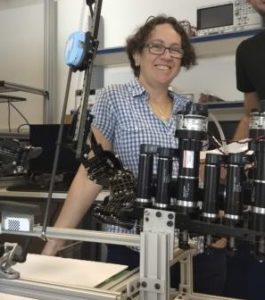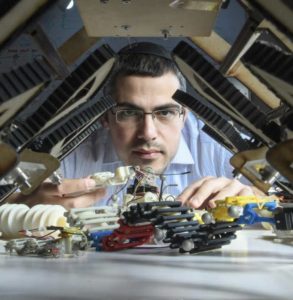
Robots in the Operating Room
September 28, 2018
No Camels – The medical robotics market is expected to hit $12.8 billion by 2022, according to a Market Watch report published this week.
“Robotics are in the operating room and they’re there to stay,” says Dr. Ilana Nisky, director of the Biomedical Robotics Lab and the first female faculty member in BGU’s Department of Biomedical Engineering. “It’s a new age [of surgery] but it’s a new age that will evolve. Expect much more progress. We’re really only in the beginning.”
BGU’s researchers and engineers are hard at work creating and designing the next must-have robotic surgical assistants in the operating room.
Dr. Nisky’s lab is presently “trying to understand how our brain processes information and incorporates this understanding into better control in robotic surgery,” she says. “We are mostly focusing on the sense of touch and providing surgeons with extra abilities.”
An example of these “extra abilities” is a robot-assisted laser tissue-soldering system. In fact, together with Tel Aviv University’s Prof. Abraham Katzir and Soroka hospital’s Dr. Uri Netz, Dr. Nisky this week had an article on this system accepted by the Biomedical Optics Express journal.
Prof. David Zarrouk, director of BGU’s Bio-Inspired and Medical Robotics Lab and a lecturer in the Department of Mechanical Engineering, has hit headlines with his work on a self-propelled camera capsule that will assist doctors in seeing the small intestine. This makes the PillCam look like old school.
Prof. Zarrouk’s innovative capsule—known as SAW (single actuator wave-like robot)– will be swallowed by a patient, but instead of it simply moving through the body, a doctor will be able to control the capsule’s movements. “All you need is a single motor,” he says.
“Medical robotics can help in numerous and varied health applications,” says Prof. Hugo Guterman, director of BGU’s Laboratory for Autonomous Robotics and member of the BGU Homeland Security Institute. “Today, people don’t question the use of robotics in medicine. The question is, how do these robotic devices benefit us?”
Medical robotics companies in Israel and beyond are also hoping to commercialize these revolutionary solutions.





